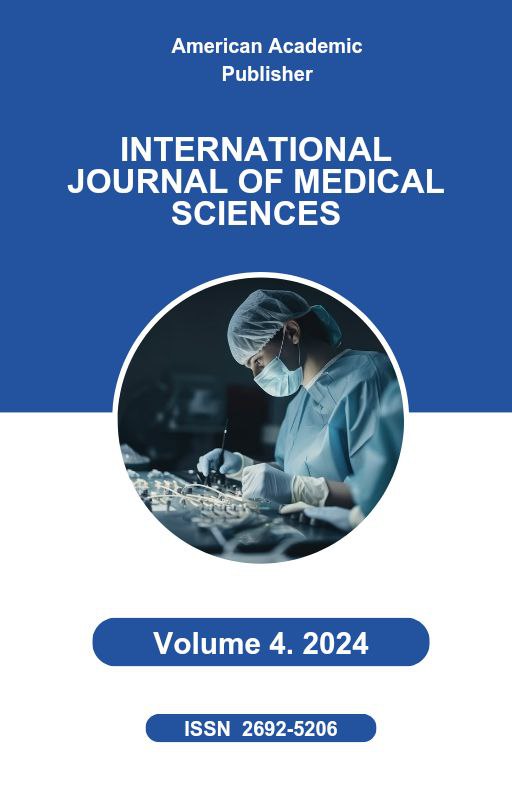 Articles
| Open Access |
https://doi.org/10.55640/
Articles
| Open Access |
https://doi.org/10.55640/
MEANING BEYOND WORDS: THE PRAGMATIC FUNCTIONS OF PROVERBS IN ENGLISH AND UZBEK DISCOURSES
Qodirova Ziyodaxon , Kokand University, the teacher of world languages departmentAbstract
This article explores the pragmatic functions of proverbs in English and Uzbek discourse, focusing on how these concise expressions convey meaning beyond their literal content. Taking a cross-cultural perspective, this study analyzes how proverbs are used in communication to advise, persuade, criticize, and reinforce social norms. The findings reveal that while English proverbs often reflect individualism, practicality, and efficiency, Uzbek proverbs emphasize collectivism, morality, and respect for tradition. Through this comparative analysis, the article highlights both universal pragmatic strategies and culturally specific features, demonstrating the essential role of proverbs in shaping discourse and cultural identity.
Keywords
proverbs, pragmatics, discourse, culture, Uzbek language, English language.
References
Arewa, E. O., & Dundes, A. (1964). Proverbs and the Ethnography of Speaking Folklore. American Anthropologist, 66(6), 70–85.
Austin, J. L. (1962). How to Do Things with Words. Oxford: Clarendon Press.
Dundes, A. (1981). On the Structure of the Proverb. Proverbium, 1, 961–973.
Honeck, R. P. (1997). A Proverb in Mind: The Cognitive Science of Proverbial Wit and Wisdom. Mahwah, NJ: Lawrence Erlbaum Associates.
Karimova, N. (2015). The Role of Proverbs in Uzbek Oral Tradition and National Identity. Tashkent: Fan Nashriyoti.
Lakoff, G., & Johnson, M. (1980). Metaphors We Live By. Chicago: University of Chicago Press.
Lau, K. J. (2019). Chinese Proverbs and Popular Sayings: With Observations on Culture and Language. Tuttle Publishing.
Litovkina, A. T. (2019). Women through Anti-Proverbs. Cham: Palgrave Macmillan.
Mieder, W. (2004). Proverbs: A Handbook. Westport, CT: Greenwood Press.
Norrick, N. R. (1985). How Proverbs Mean: Semantic Studies in English Proverbs. Berlin: Mouton de Gruyter.
Seitel, P. (1994). Proverbs: A Social Use of Metaphor. In W. Mieder (Ed.), Wise Words: Essays on the Proverb (pp. 122–139). New York: Garland.
Yo‘ldoshev, M. (2001). O‘zbek Paremiologiyasi va Milliy Mentalitet. Tashkent: Universitet Nashriyoti.
Ziyodaxon, Q. (2025). THE IMPACT OF TOURISM ON LANGUAGE ACQUISITION: A NEW APPROACH TO TEACHING ENGLISH. TANQIDIY NAZAR, TAHLILIY TAFAKKUR VA INNOVATSION G ‘OYALAR, 1(8), 170-172.
Qodirova, Z. (2025). PROVERBS AS PRAGMATIC TOOLS IN UZBEK AND ENGLISH DISCOURSE: A COMPARATIVE ANALYSIS. Journal of Applied Science and Social Science, 1(1), 660-666.
Qodirova, Z. (2025). TIMELESS TRUTHS: HOW PROVERBS SHAPE AND ENRICH LITERATURE. "GLOBAL MUNOSABATLAR NAZARIYASI: YOSHLARNING TARAQQIYOT GʻOYALARI" xalqaro ilmiy-amaliy anjumani materiallari, 1(2), 147-149.
Qodirova, Z. (2025). MASTERING PHRASAL VERBS: A KEY TO FLUENT ENGLISH. MODERN PROBLEMS IN EDUCATION AND THEIR SCIENTIFIC SOLUTIONS, 1(6), 414-415.
Article Statistics
Downloads
Copyright License

This work is licensed under a Creative Commons Attribution 4.0 International License.

